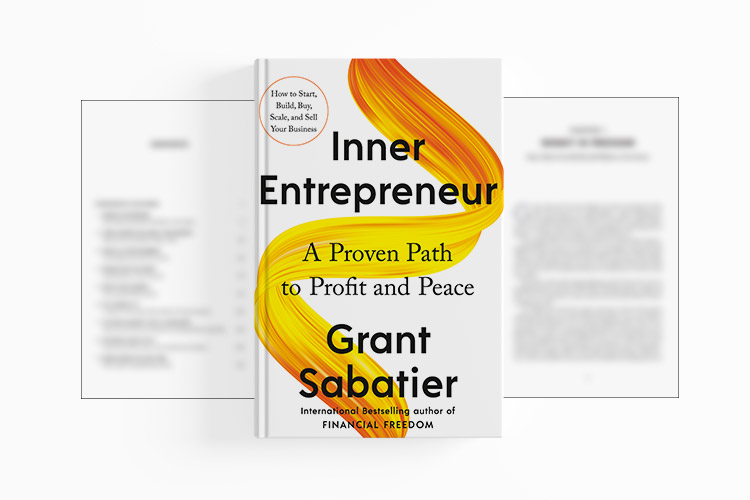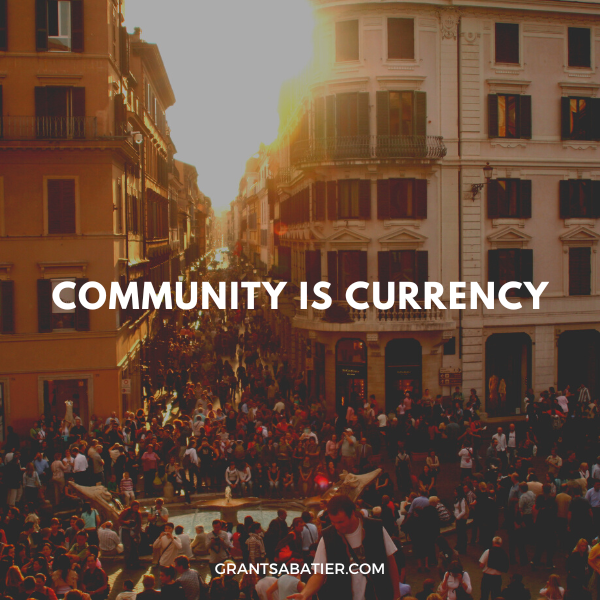It’s a cool summer night in Venice and the wake from the boats on the Grand Canal is splashing against the glass next to my feet. My wife and I have spent the last few weeks in Italy writing, and the past few days dodging Venice tourists as they dodge us.
It’s been hot the past few days, but tonight, our last night, we’ve found ourselves back at the Gritti Palace bar, on the patio sipping a few overpriced, but exceptionally good cocktails. It’s intensely cinematic and has a good vibe. It’s been a great trip we don’t want to end, so we’re here even though we should be sleeping. Our flight is at 7 am and it’s rapidly approaching midnight.

We both stare out and get lost in the water, but a loud voice cracks through the silence. “I’m from Chicago, yeah Chicago,” I hear from behind me. There’s a guy sitting behind me that I hadn’t noticed earlier, smoking a cigar, telling the waiter to keep his drinks off the hotel tab. “My wife’s asleep upstairs,” he tells a clearly uninterested server, “Just keep it off the room.” He catches me looking, “We’re from Chicago too,” I share. We ask him to join us.
“I’m a road warrior”
Dan (not his real name, but a real person) is about four drinks deep by the time we meet him and quickly tells us his whole story. I’m down to listen. Dan is 47 years old and lives in Chicago. He’s got that slick boyish hair that makes him, along with his money, look younger. But he’s rarely home. “I’m gone every week. I’ve been traveling for the past 20 years working in software sales,” he shares proudly, “I’m a road warrior.”
Since I’m a numbers guy I quickly calculated how many days he must have stayed in hotel rooms in my head (estimated 200 nights a year x 20 years = 4,000 nights or approximately 54% of his last 20 years have been spent in hotel rooms). That’s a ton of mini shampoos, and while I love mini shampoos, that’s an insane amount of Dan’s life that he’s away from home. But why?
Dan grew up in the Midwest and went to prep school. He’s the youngest of three brothers, with a father who “became a millionaire at 40.” He has an MBA, is a CPA, and has worked for some of the top technology companies in the world. In one of his previous positions, he managed over 2,400 people. Later I will learn he’s a really well-known businessman. He has two sons and lives in a ritzy Chicago suburb.
“Man that must be expensive,” I couldn’t but say. This dude has been traveling on the road for over 20 years, of course, I was going to dig deeper. Not surprisingly our conversation turns to money. Dan asks what I’m doing in Italy and is stoked to hear about Millennial Money, the book, and my own story. But eventually, he gets a concerned look on his face – “there’s no way you’ll be able to survive on $1.25 million dollars for the rest of your life.” I shared the simple early retirement calculation I’d made by multiplying 25 times my expected annual expenses. “No way, No way man,” he shook his head vigorously.
How much do you really need to walk away?
I asked him how much he thought I would need to live forever without work. “At least $5 million.” I just started laughing. Then I caught the giggles a bit and just kept laughing. That’s insane. I told him how many people can retire in years or less. I explained how the simple math of the 4% annual withdrawal rate worked in my calculations, while simultaneously making the case that I could, in fact, live on $50,000 per year. If I had $5,000,000 (which I don’t), then with a 4% withdrawal rate I could take out and live on $200,000 per year and my money would still grow!
I tried to explain how my investing strategy was built on a collection of index funds that are based on the simple historical fact that over any 15 year period for at least the past 100 years, investing in the total stock market (ex. Vanguard VTI ETF) would generate an investment return of approximately 7% per year. Thus, since I have $1,250,000 and plan to take out $50,000 (or 4%), my principal would grow. For a guy who is a CPA by training, has an MBA, and has worked in corporate America for over 20 years – surprisingly Dan just didn’t buy it. He’s kept saying “No way. No way.” So I dug deeper.
Not surprisingly, Dan doesn’t manage his own money. His best friend from college does. For some reason when he told me this I got a sinking feeling in the pit of my stomach and felt like his friend is either taking money from him or doing stupid things with it. Maybe not, just a vibe I got. I ask him what he invests in. “You know apartments, buildings, IPOs, a bunch of stuff.”
I push Dan for specifics, but it feels like he doesn’t have them. I ask if he invests in index funds or any specific ETFs, but he doesn’t reveal anything, just repeats himself “You know, apartment buildings and stuff.” He either doesn’t know or is putting on an Oscar-worthy performance to convince me he doesn’t. He mentions again how his best friend from college manages his money.
Dan spends $350,000 per year managing his lifestyle
I can’t get over the fact that Dan has spent the last 20 years on the road and is still doing it at the age of 47. The question, “Why?” keeps echoing in my head. Why would someone choose to be away from their family and live their life in hotel rooms? Dan says he loves it. He loves to travel. Loves the road. Loves the money. Loves everything about it. But I just don’t buy it.
I’ve done a ton of business traveling and most of the time it just sucks. Sure it’s fun to fly to Singapore or London, but most business travel just isn’t that glamorous and things rarely go as planned. Have you ever been stuck in Kansas City trying to get the last flight home, but then it gets canceled so you have to spend the night in an airport Marriot and get the next flight out in the morning? Dan has to experience this hassle all the time. Why?
Dan needs the money. As it turns out and I’m not really surprised when it eventually comes out, Dan needs to make a lot of money to maintain his lifestyle. He estimates he spends about $350,000 a year or even more some years. He tells me again that it’s completely unreasonable to think that I can live on $50,000 per year and that once I have two kids and a big house in the suburbs I will need to make $350,000 per year to maintain my lifestyle. And that unless I have $5,000,000 saved financial independence is a complete myth.
“Now that I’m making so much money, why would I want to stop,” Dan says, his eyes wide and with piercing intensity.
For Dan, like many successful people I meet, life is about more. When you are forced to work because you have to maintain an expensive lifestyle, it’s a tradeoff that ultimately gives you less freedom. More, more, more is a vicious cycle. The longer you do something, the harder it is to stop. Dan’s been a road warrior for so long, it’s simply who he is. It defines him. As it turns out he has no real passions. This is his life. It’s where he’s comfortable.
Most of us like routines – they’re familiar and predictable. Our ancestors loved routines because the outcome is almost always expected and there’s less to fear. But routines can also shut us out from other experiences. Of course, I don’t know Dan that well, so it might be really happy, but I didn’t get that vibe. He actually seems pretty lost.
He spends his time making money for a company, that certainly pays him well, but he leaves little space for anything else. And despite all of the money Dan is making, he spends most of his waking hours simply trying to cover his expensive lifestyle. It’s clear he really doesn’t know where his money is going or what he’s investing in. It’s also clear that most of what Dan makes likely goes to cover his expenses. He suffers from lifestyle inflation, which I even personally struggled with last year.
While Dan projects a high level of bro confidence, he eventually admits to spending “a lot of time in hotel bars,” and he has trouble sleeping. It turns out Dan’s “vacation” in Venice is actually only about 24 hours and then he flew to another city in Europe for a meeting and then home. The whole time that he is sitting with me, I keep wondering why he’s not up hanging out in his room with his wife on his one day off?
We’ve spent the last 3 hours talking and by the time our conversation wraps up, it’s almost 2 in the morning. I have to head to the airport in just a few hours. Dan promises to reach out when he’s back in Chicago so we can grab a drink, but I can tell that probably won’t happen. How could it?
Dan’s always on the road. He’s the lost road warrior. I’m grateful for our conversation. The 24-year-old me would have been wowed by Dan’s lifestyle, by his drive, by how much money he makes. But financial independence is about more than having enough money to walk away, it’s also about being free from the worries of money, and being in control. At that moment I felt truly free.
Grant Sabatier writes about money, mindfulness, and financial independence – all with the ultimate goal of helping you build a life you love.
His story and ideas have been featured in The New York Times, Washington Post, NPR, CNBC, Business Insider, and many other places.




